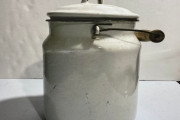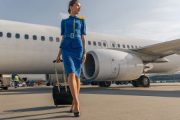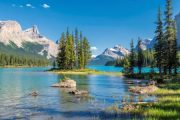Back in Caracas, the transfer to Genoa was formalized, and my parents acquired the services of an inspiring teacher to act as a private tutor to their three boys for an indeterminate number of months in Italy. Miss Edge, as I shall call her, was kind, thorough and disciplined, the daughter of a joiner, and a formidable teacher of English and art at our school, for whom I had the greatest of respect. As she loved travel, and remained unmarried, she leapt at the chance to accompany the family. Household effects were packed into one of Gutierrez’s enormous trucks, and we set off from Venezuela for the last time together. Our Vauxhall was to come with us. My father had to return to London for undisclosed consultations with his employer, but the rest of us went on holiday to Barbados, then also a British colony, and a holiday destination for us many times, to await his return. We had last been there only two years before, and had seen there the four Small World balloonists who had crossed the Atlantic from the Canaries to the island in early January 1959, waving to crowds in Bridgetown in celebration.
Events, however, were to disrupt our plans for Genoa. A long-distance phone call from my father to the Cable and Wireless office next door to our rented beach apartment at Dover Beach some days later revealed that we were not to go to Italy, but to return to England. The disappointment and sense of betrayal were overwhelming. Miss Edge had to be told. She adjusted with considerable aplomb, went on to become Headmistress of Escuela Britanica herself, was eventually awarded the O.B.E. by the Queen for her services to British education abroad, and now lives in retirement in her nineties in Christchurch in southern England, where members of our family have visited her over the years. I last saw her there in 2011, and my mother wrote to her for more than 40 years. Years before it became fashionable, she went on long round-the-world ocean cruises by herself.
After we left Venezuela, my Swiss friend Raymond returned to Marseille; Aly, the son of a Caracas art gallery owner, moved to New York City where he married and became a reporter: I have his highly-rated book, Provenance, about art fraud, on my bookshelf today; Alan, who had been a Lobato, a Cub Scout, with me, left Venezuela for Miami, where he now earns his living as an interpreter for Venezuelan refugees; Suzy married her classmate Ricardo; other families returned to England. It has been more than 60 years since I last saw any of them. My parents’ friends Agosto and his wife Elena, kind and generous people who doted on the three of us, always buying clothes for us, who had come to Venezuela from Spain as penniless immigrants, did exceptionally well. She worked as a maid; he eventually became a millionaire and president of Avensa, the Venezuelan national airline, before also leaving Caracas for Miami, where we visited them in their condo on Key Biscayne in 1972. For most of us exiles, Venezuela could never become home, but as a part of our lives, it could never be forgotten. I still make the Venezuelan dessert quesillo, with condensed milk and four eggs, from time to time. On the wall behind me as I sit writing this is a photograph of Plaza Altamira as it was in Caracas in 1954, with its obelisk and fountain, its wide, empty streets, and the sunlit Avila mountains behind it, untouched by time, a reminder of what I have lost, but never forgotten, so many years ago…




